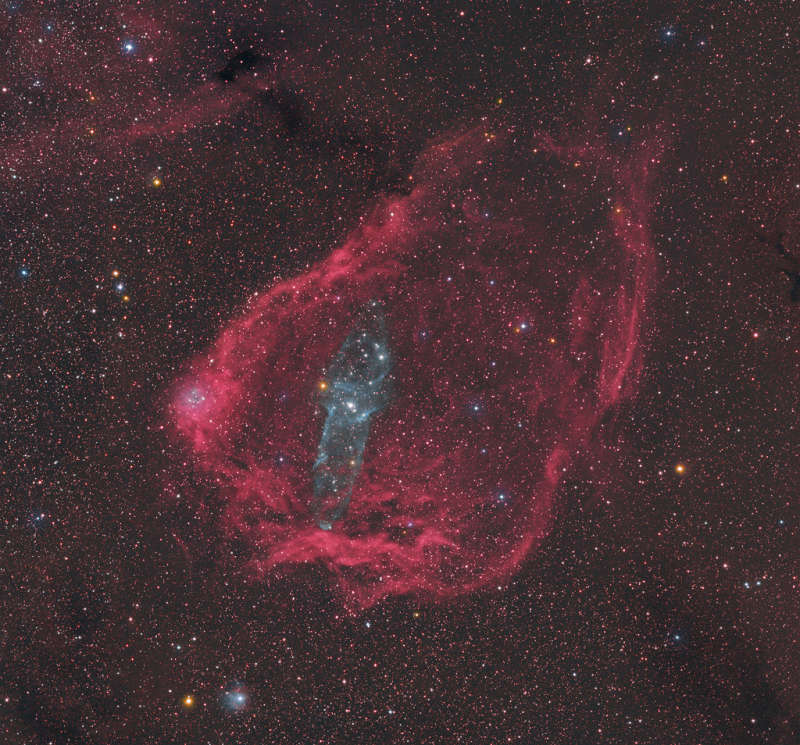 |
Астронет: Астрономическая картинка дня Гигантский Кальмар и Летучая мышь http://www.astronet.ru/db/msg/1342956/eng |
Credit & Copyright: Steve
Cannistra
(StarryWonders)
Explanation:
Very faint but also very large on planet Earth's sky, a
giant Squid Nebula cataloged as Ou4, and Sh2-129 also known as the
Flying Bat Nebula, are both caught in this scene
toward the royal constellation Cepheus.
Composed with
a total of 20 hours of broadband and narrowband data,
the telescopic field of view is almost 4 degrees or 8 Full Moons across.
Discovered in 2011 by
French astro-imager Nicolas
Outters, the Squid Nebula's alluring
bipolar shape
is distinguished here
by the telltale blue-green
emission from
doubly ionized oxygen atoms.
Though apparently completely surrounded by the reddish hydrogen
emission region Sh2-129, the true distance and nature
of the Squid Nebula have been difficult to determine.
Still, a recent investigation
suggests Ou4 really does lie
within Sh2-129
some 2,300 light-years away.
Consistent with that scenario, Ou4 would represent a spectacular
outflow driven by a
triple
system of hot, massive stars, cataloged as HR8119,
seen near the center of the nebula.
If so, the truly giant Squid Nebula
would physically be nearly 50 light-years across.
Authors & editors:
Robert Nemiroff
(MTU) &
Jerry Bonnell
(USRA)
NASA Web Site Statements, Warnings,
and Disclaimers
NASA Official: Jay Norris.
Specific
rights apply.
A service of:
LHEA at
NASA /
GSFC
& Michigan Tech. U.
